After the February 4 summit between Chinese President Xi Jinping and Russian President Vladimir Putin in Beijing on the side-lines of the Beijing Winter Olympics, where Putin briefed Xi Jinping -- or certainly gave him at least a fair insight into his plans for Ukraine -- China has been unwavering in its support to Russia. This despite the fact that the US repeatedly urging China including as recently as March 5 to join the US and West in their sanctions against Russia’s invasion of Ukraine. The Chinese official media, which doesn’t use terms like ‘invasion’ to describe Russian action in Ukraine, and has strongly supported Russia, however, appears to have modulated its reporting on developments concerning Ukraine to some extent since around February 27-28. This will be to avoid attracting adverse notice of the West and potentially sanctions against Chinese companies and entities trading, or doing business, with Russia.
The Chinese leadership’s views -- and certainly of Xi Jinping and his close confidants -- are reflected in assessmentsin the Chinese media including those posted on China’s social media. A commentary published immediately after the visit highlighted that the joint statement can “be called a joint declaration against hegemony". China’s social media is awash with posts criticisingUkraine, abusing and making offensive remarks about Ukrainians, and disparaging the West. Many project the xenophobia among the Chinese heightened by the nationwide national security campaigns promoted by Xi Jinping. The support for Russia is echoed in assessments of the impact of the West’s sanctions on Russia.
On March 1, the popular Chinese portal ‘guancha’ (Observer) published an analysis of the war in Ukraine by Professor Wen Yang of Fudan University and the Chunqiu Institute. He argued that ‘in order to understand current tensions in the world, one should look no further than Afghanistan in Central Asia, Ukraine in Eastern Europe, and Taiwan in East Asia’. Citing Huntington’s ‘Clash of Civilisations’, Wen Yang said though the three appeared different, each is actually at the crossroads of Western civilization's sphere of influence and other major civilizations. Stating that the ‘war in Ukraine was unavoidable because its identity belongs to Russian Orthodox "civilization," whereas Western "civilization" dared to "provoke" and dismember their civilization through economic and political annexation’, Wen Yang suggested that a war over Taiwan between China and the US-led West is similarly inevitable. He attributed Western dominance over the international media as a major factor on ‘par with a nuclear weapon’.
Professor Zhang Wenmu, a well-known political scientist, naval strategist and leftist scholar who is a Professor at Beijing's elite Beihang University's Center for Strategic Studies and Executive Director of the World Socialism Research Center of the Chinese Academy of Social Sciences (CASS), published a commentary on Ukraine on the PLA-maintained Kunlun Online on March 7, 2022. It was titled "Why has Ukraine become Jewified, and why has Israel put up with it? It's because Wall Street wanted to plant a quasi-Israel in this problematic European region". Zhang Wenmu explained, briefly, that “the reason behind Ukraine's Nazification” was “designed to sow the seeds of a world war in Europe. In the previous one, the Jews did not anticipate Hitler, whom they had helped to power, to turn on them. However, Jews as a people, as well as the great bulk of humanity, are merely tools for Wall Street's profits."
Chinese Foreign Minister Wang Yi too, in his press interview (March 7) on the side-lines of China’s ongoing annual National People’s Congress session, while responding to questions on Ukraine was careful to stress China’s ironclad relationship with Russia. He said that “In order to maintain their hegemonic status, some major powers regained the Cold War mentality and created factional confrontations, which further aggravated the turmoil and division, and made the already troubled world even worse”. Earlier, on March 6, the People’s Daily quoted him saying “China believes that to resolve the Ukrainian crisis, it is still necessary to act in accordance with the purposes and principles of the UN Charter. The first is to respect and protect the sovereignty and territorial integrity of all countries, and the second is to insist on peaceful settlement of disputes through dialogue”. The statement had inherent Beijing’s support for Moscow.
On March 1, Ma Xue, Associate Researcher at the China Institutes of Contemporary International Relations (CICIR), published an assessment of the impact that Western sanctions will have on Russia. The CICIR is an influential think-tank of China’s foreign intelligence establishment, the Ministry of State Security (MoSS). Its President occasionally briefs the Chinese Politburo. Bloomberg News claimed (March 1) that Ma Xue assessed that the sanctions levelled against Russia will ultimately cause more damage to the US and its allies. He said that Russia has largely adapted to dealing with punitive financial measures since 2014, when it was penalized for seizing Crimea. Ma Xue, concluded that the US and European allies will wind up suffering for supporting Ukraine. “If the Ukraine refugee crisis is not properly handled, this will be conducive for Russia to sow hatred and sabotage NATO. The fierce debate on refugee problems inside Europe could also damage its unity at crucial moments.”
Two senior researchers of the Institute of World Economics and Politics of the Chinese Academy of Social Sciences (CASS), China’s largest government think-tank, separately published a report entitled ‘An assessment of the impact of financial sanctions on Russia’. Released on March 1, it was published by Regional Frontier Watch, a think-tank of China’s Caijing financial magazine. It noted that since the outbreak of the Russian-Ukrainian conflict on February 24, the number of sanctions imposed by the United States and its allies against Russia has increased but the magnitude of their impact is yet to be assessed. It observed that between 2014 and 2021, the US has always imposed financial sanctions and export control lists against Russia and that the targets have invariably been the three major industries of finance, energy and defence.
The main points in this article by Xu Qiyuan, Researcher and Deputy Director of the Institute of World Economics and Politics, Chinese Academy of Social Sciences (CASS) and Hou Lei, Associate Researcher of the Institute of World Economics and Politics, Chinese Academy of Social Sciences are, very briefly:
- European and American financial sanctions against Russia are constrained by the following three points: With trillions of dollars in assets owned by foreign capital in Russia, Russia is a commodity "superpower", and the global supply chain is already very tight.
- The substantial impact of financial sanctions on Russia's energy exports has begun to emerge. Russia can still bear the price difference between Russia's crude oil exports and the international market.
- Russia's fiscal situation faces four major challenges: the possible reduction of energy exports, the decline of the sovereign credit rating, the loss of liquidity of foreign reserves, the war itself and its impact on the domestic macro economy.
- The sanctions on foreign exchange reserves will have the biggest impact, which will affect the stability of the Russian foreign exchange market, inflation and other macroeconomic order, and may even affect the domestic public opinion environment.
- Russia has taken three measures to deal with the pressure on the foreign exchange market, but these measures also show that the liquidity of its foreign exchange reserves may already be under greater pressure.
- For Russia, the progress of the current war itself is still the main aspect of the contradiction, and the progress of the war is of great significance to the stability of Russia's economy and finance.
The CASS researchers noted that the US has included more than 120 entities (including Belarusian entities with close ties to the Russian defence and financial industries) in its “most stringent financial sanctions list”, as well as individuals and a ban on debt and equity transactions in 13 Russian state-owned and large private financial institutions. It said the scope of the sanctions had widened with the West joining. It identified the decision to ban Russian banks from SWIFT as a serious measure, but pointed out that not all 300 of Russian banks had been affected and it "does not target Russia's oil and gas industry". It claimed that restrictions on the Russian central bank's use of its international reserve position are also vague.
The report described Russia as an all-round commodity "superpower" and highlighted its reserves of energy, minerals and grain, which make it a major factor in the global supply chain. The assessment said that the progress of the current war is Russia’s main concern and of great significance to Russia's economic and financial stability. It concluded that while Russia will be able to resist the sanctions in the near to medium term, if the war drags on for a long time then the global energy supply situation will improve and will affect the fiscal balance of payments. This will make financing national debt financing difficult. Finally, after a period of time, the constraints of financial sanctions imposed by Western countries will be significantly reduced.
While these assessments are not conclusive, they do emphasise the importance of Russia ending conflict soon. A prolonged conflict will make it increasingly difficult for the Chinese communist leadership to maintain its support for Russian President Putin while avoiding Western sanctions. They also reflect China’s view that there is room for peace negotiations which, it hopes, could see the sanctions against Russia being eased.
(The paper is the author’s individual scholastic articulation. The author certifies that the article/paper is original in content, unpublished and it has not been submitted for publication/web upload elsewhere, and that the facts and figures quoted are duly referenced, as needed, and are believed to be correct). (The paper does not necessarily represent the organisational stance... More >>
Image Source: https://resize.indiatvnews.com/en/resize/newbucket/715_-/2022/02/china-russia-prez-1645871949.jpg

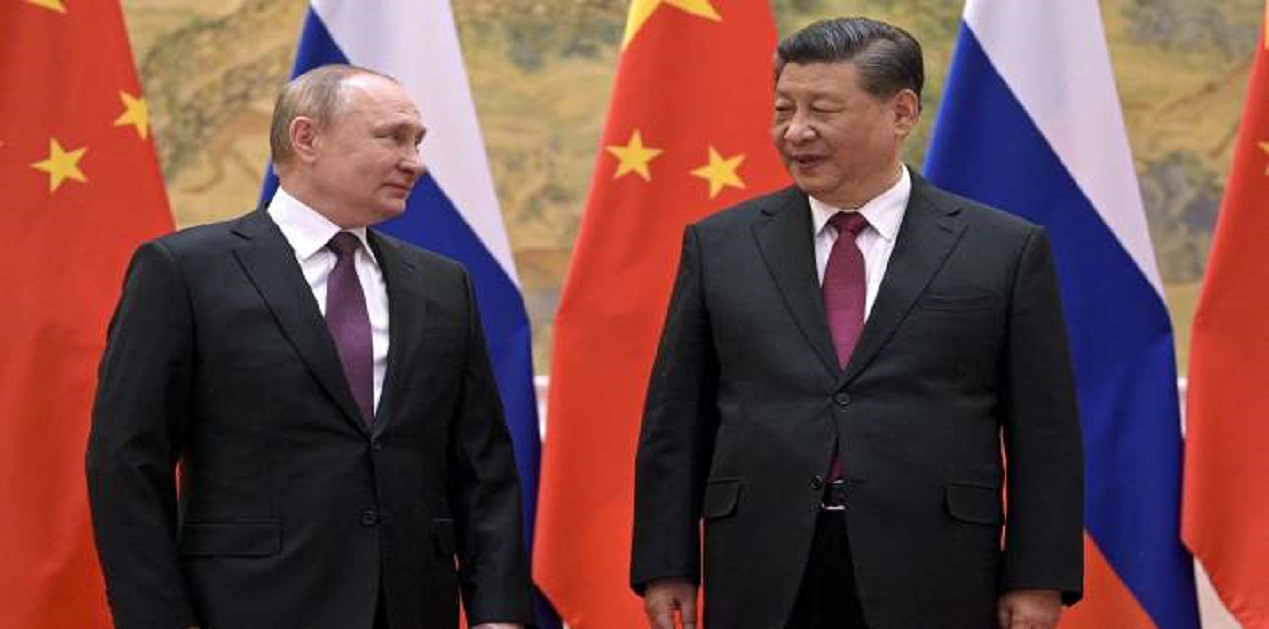
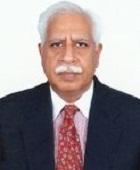

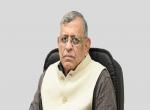


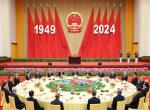

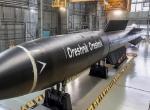
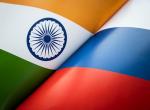
Post new comment